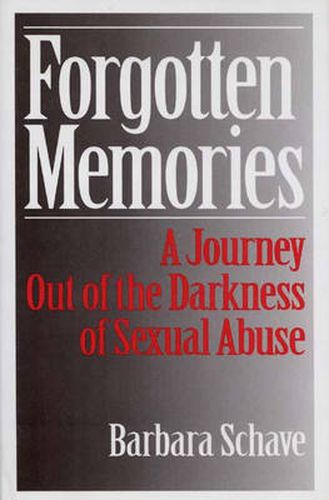Readings Newsletter
Become a Readings Member to make your shopping experience even easier.
Sign in or sign up for free!
You’re not far away from qualifying for FREE standard shipping within Australia
You’ve qualified for FREE standard shipping within Australia
The cart is loading…






During psychoanalysis as a young adult, the author was treated by an analyst who distorted, misunderstood and misinterpreted painful childhood events. In a successful second analysis, Dr Schave was able to uncover forgotten memories of sexual abuse, buried from her conscious awareness for over 35 years. The author’s emotional contact with the realities of her traumatic past led to a healing process and as Dr Schave understood and overcame her childhood experiences, she was better able to treat other survivors of sexual abuse. Schave’s story is important to other survivors because it is a first-person account that details the recovery process. She relates what she can remember of her abuse and, more importantly, how she came to realize she was not a damaged person. Incest is taboo in our culture, making it a difficult subject to discuss. For this and other reasons, not much is known about how to treat survivors. With her hard-won personal and professional insights, Dr Schave explores various treatment options, focusing on the crucial importance of sensitivity, honesty and equal partnership between therapist and patient. She leads survivors of sexual abuse through phases of therapy that include the toleration of feelings, reduction of stress, uncovering forgotten memories, confrontation and integrating the trauma.
$9.00 standard shipping within Australia
FREE standard shipping within Australia for orders over $100.00
Express & International shipping calculated at checkout
During psychoanalysis as a young adult, the author was treated by an analyst who distorted, misunderstood and misinterpreted painful childhood events. In a successful second analysis, Dr Schave was able to uncover forgotten memories of sexual abuse, buried from her conscious awareness for over 35 years. The author’s emotional contact with the realities of her traumatic past led to a healing process and as Dr Schave understood and overcame her childhood experiences, she was better able to treat other survivors of sexual abuse. Schave’s story is important to other survivors because it is a first-person account that details the recovery process. She relates what she can remember of her abuse and, more importantly, how she came to realize she was not a damaged person. Incest is taboo in our culture, making it a difficult subject to discuss. For this and other reasons, not much is known about how to treat survivors. With her hard-won personal and professional insights, Dr Schave explores various treatment options, focusing on the crucial importance of sensitivity, honesty and equal partnership between therapist and patient. She leads survivors of sexual abuse through phases of therapy that include the toleration of feelings, reduction of stress, uncovering forgotten memories, confrontation and integrating the trauma.